25 Great Quotes By Sir Isaiah Berlin
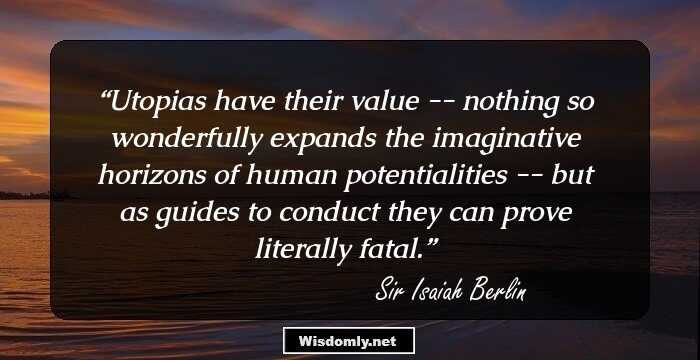
Utopias have their value -- nothing so wonderfully expands the imaginative horizons of human potentialities -- but as guides to conduct they can prove literally fatal.
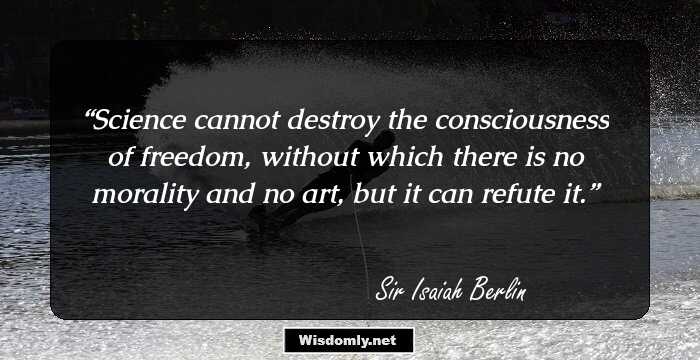
Science cannot destroy the consciousness of freedom, without which there is no morality and no art, but it can refute it.
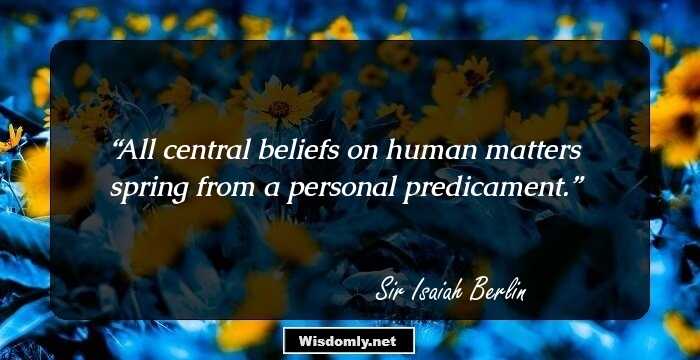
All central beliefs on human matters spring from a personal predicament.
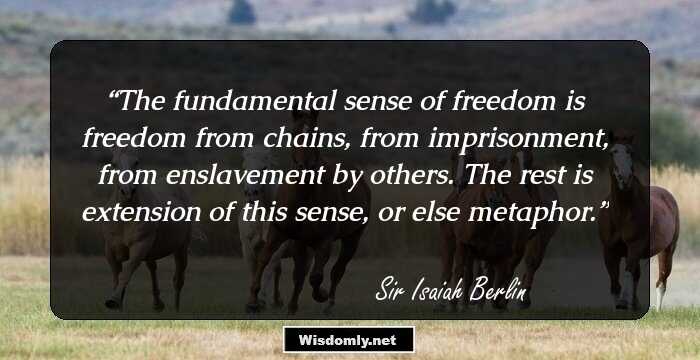
The fundamental sense of freedom is freedom from chains, from imprisonment, from enslavement by others. The rest is extension of this sense, or else metaphor.
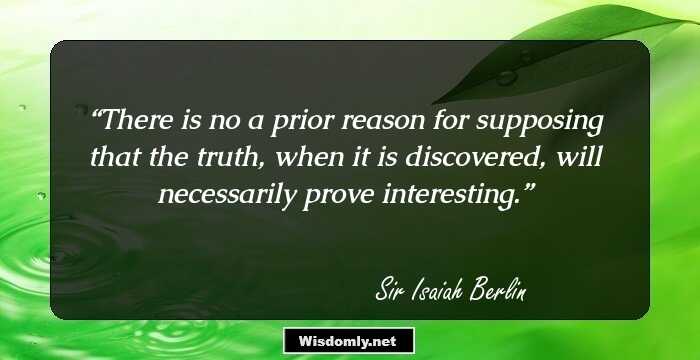
There is no a prior reason for supposing that the truth, when it is discovered, will necessarily prove interesting.
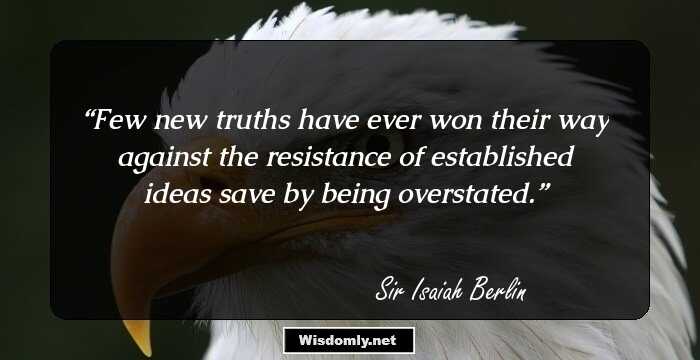
Few new truths have ever won their way against the resistance of established ideas save by being overstated.
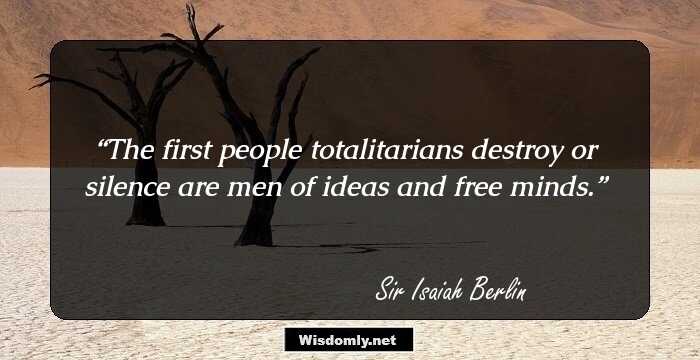
The first people totalitarians destroy or silence are men of ideas and free minds.
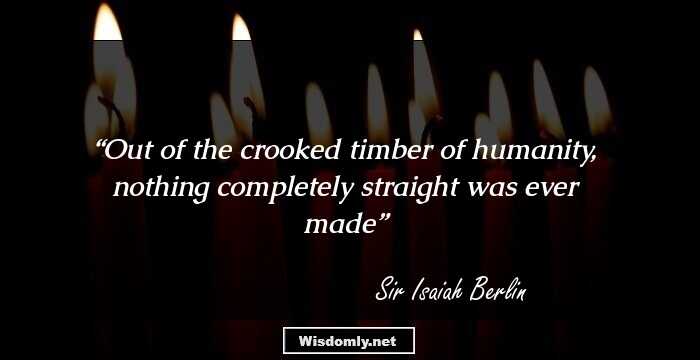
Out of the crooked timber of humanity, nothing completely straight was ever made
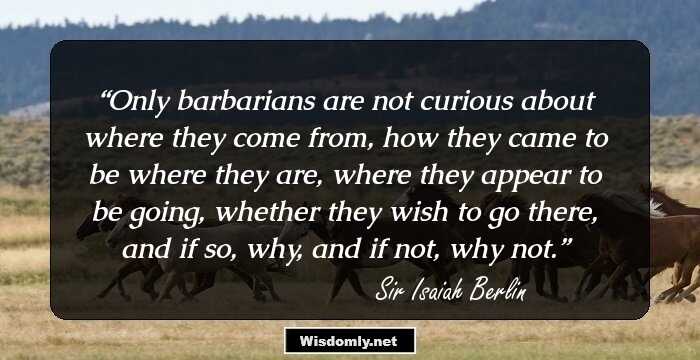
Only barbarians are not curious about where they come from, how they came to be where they are, where they appear to be going, whether they wish to go there, and if so, why, and if not, why not.
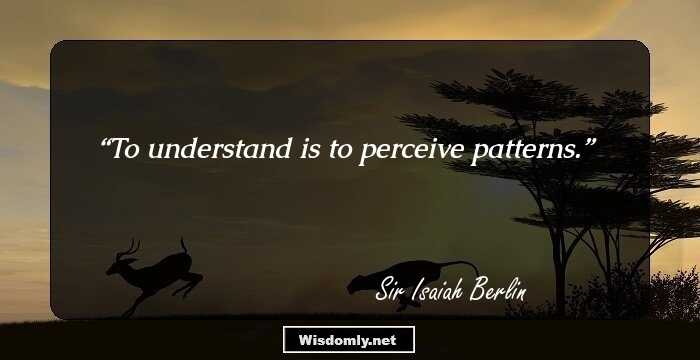
To understand is to perceive patterns.
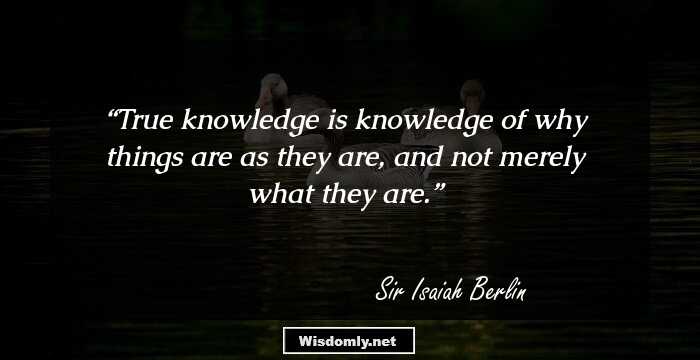
True knowledge is knowledge of why things are as they are, and not merely what they are.
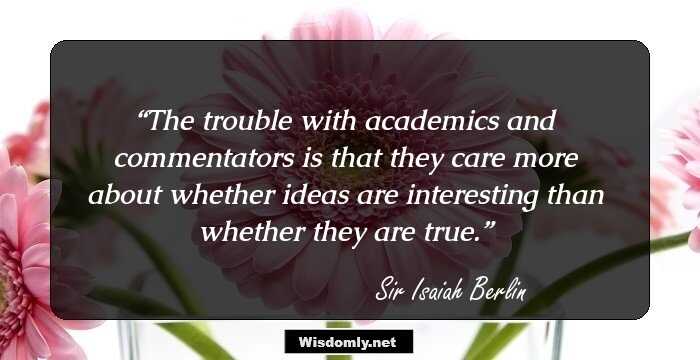
The trouble with academics and commentators is that they care more about whether ideas are interesting than whether they are true.
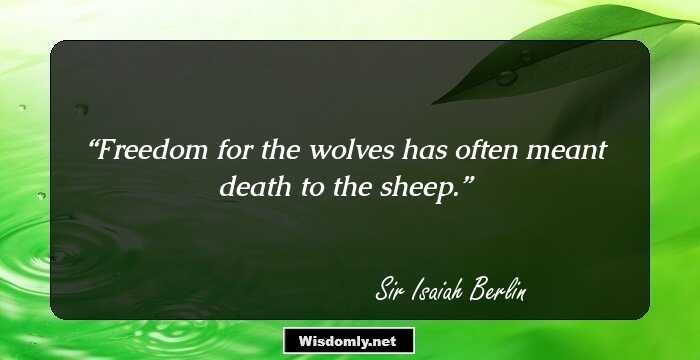
Freedom for the wolves has often meant death to the sheep.
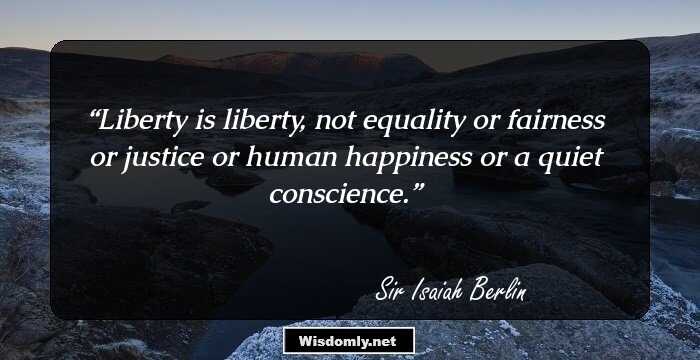
Liberty is liberty, not equality or fairness or justice or human happiness or a quiet conscience.
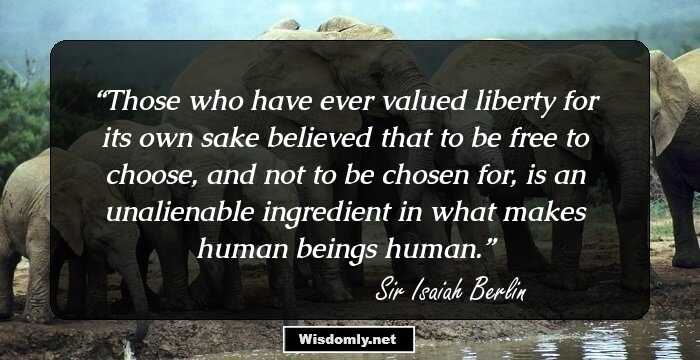
Those who have ever valued liberty for its own sake believed that to be free to choose, and not to be chosen for, is an unalienable ingredient in what makes human beings human.
Injustice, poverty, slavery, ignorance - these may be cured by reform or revolution. But men do not live only by fighting evils. They live by positive goals, individual and collective, a vast variety of them, seldom predictable, at times incompatible.
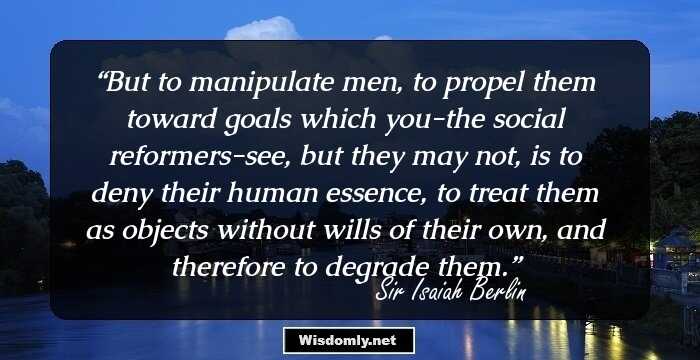
But to manipulate men, to propel them toward goals which you-the social reformers-see, but they may not, is to deny their human essence, to treat them as objects without wills of their own, and therefore to degrade them.
Few things have done more harm than the belief on the part of individuals or groups (or tribes or states or nations or churches) that he or she or they are in sole possession of the truth: especially about how to live, what to be and do - and that those who differ from them are not merely mistaken, but wicked or mad: and need restraining or suppressing.
Liberty and equality, spontaneity and security, happiness and knowledge, mercy and justice - all these are ultimate human values, sought for themselves alone; yet when they are incompatible, they cannot all be attained, choices must be made, sometimes tragic losses accepted in the pursuit of some preferred ultimate end.
If, as I believe, the ends of men are many, and not all of them are in principle compatible with each other, then the possibility of conflict—and of tragedy—can never wholly be eliminated from human life, either personal or social. The necessity of choosing between absolute claims is then an inescapable characteristic of the human condition. This gives its value to freedom as Acton conceived of it—as an end in itself, and not as a temporary need, arising out of our confused notions and irrational and disordered lives, a predicament which a panacea could one day put right
Both liberty and equality are among the primary goals pursued by human beings throughout many centuries; but total liberty for wolves is death to the lambs, total liberty of the powerful, the gifted, is not compatible with the rights to a decent existence of the weak and the less gifted.
All forms of tampering with human beings, getting at them, shaping them against their will to your own pattern, all thought control and conditioning is, therefore, a denial of that in men which makes them men and their values ultimate.
The intellectual power, honesty, lucidity, courage, and disinterested love of the truth of the most gifted thinkers of the eighteenth century remain to this day without parallel. Their age is one of the best and most hopeful episodes in the life of mankind.
One belief, more than any other, is responsible for the slaughter of individuals on the alter of the great historical ideas - justice or progress or happiness of future generations... or emancipation of a nation or race or class... this is the belief that somewhere... there is a final solution.
The history of society is the history of the inventive labors that man alter man, alter his desires, habits, outlook, relationships both to other men and to physical nature, with which man is in perpetual physical and technological metabolism.










